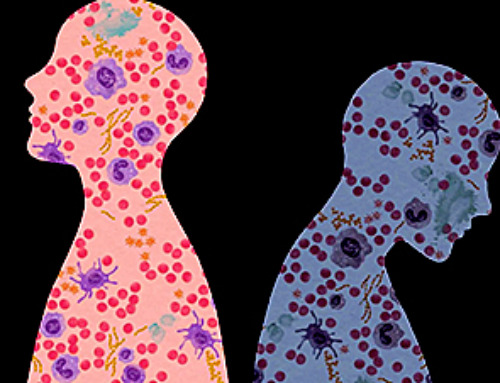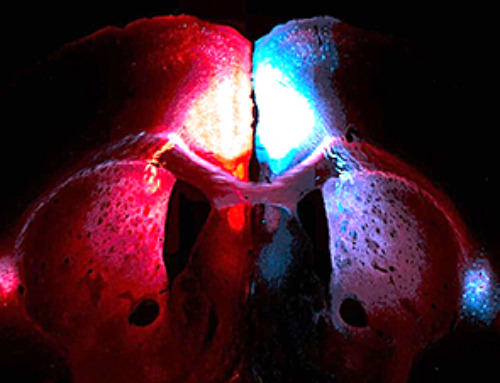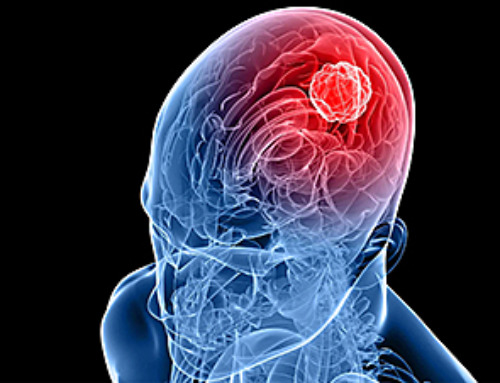Clinical-stage biotech Alzheon has completed a $100 million Series E financing round to advance the development and commercialization of its oral drug for Alzheimer’s disease. The drug, called ALZ-801 (valiltramiprosate), is designed to inhibit the formation of soluble toxic beta amyloid oligomers, which are implicated in the cognitive decline observed in Alzheimer’s patients. The small molecule acts upstream of other late-stage amyloid-targeting treatments, offering a potentially more effective intervention by addressing the early formation of neurotoxic aggregates.
The new funding will be used to complete the current APOLLOE4 Phase 3 study to evaluate the efficacy and safety of ALZ-801 in patients with early Alzheimer’s disease. It will also support Alzheon’s plans to submit a New Drug Application (NDA) in 2024 based on the study’s outcomes, as well as preparing the manufacturing processes and commercial launch of ALZ-801, which is potentially the first oral disease-modifying therapy for Alzheimer’s.
“This latest fundraising ensures that we will have sufficient capital to complete our pivotal Phase 3 program and prepare commercialization of oral ALZ-801/valiltramiprosate with runway well into 2026,” said Ken Mace, CFO of Alzheon. “ALZ-801 has the potential to disrupt the Alzheimer’s treatment paradigm by slowing the progression of this relentless and debilitating disease, and the results from our pivotal APOLLOE4 Phase 3 trial will set the stage for the potential NDA filing this year, followed by the U.S. commercial launch in 2025.”
The pivotal APOLLOE4 Phase 3 study particularly targets patients with two copies of the APOE4/4 gene, a high-risk group that constitutes approximately 15% of Alzheimer’s patients, including actor Chris Hemsworth. The study, which has screened over 6,000 patients and enrolled 325 subjects, will conclude in the third quarter of 2024. Positive results could pave the way for regulatory approval and subsequent commercialization.
“We are at the dawn of a new era in the treatment of Alzheimer’s disease, and our novel therapeutic approach has an opportunity to transform the standard of care and improve access to treatment for all Alzheimer’s patients,” said Dr Martin Tolar, CEO of Alzheon. “Our well-differentiated drug candidate with a favorable safety profile, showing no increased risk of vasogenic brain edema in more than 3,000 AD patients, is positioned to potentially become the first oral disease modifying therapy for the treatment of Alzheimer’s disease.”
In addition to the Phase 3 study, ALZ-801 has been evaluated in a two-year Phase 2 biomarker trial involving 84 patients, including 31 APOE4/4 homozygotes. This trial, completed in late 2023, is currently in a fourth-year extension phase. The study’s primary goal is to assess the effects of ALZ-801 on biomarkers of Alzheimer’s pathology, alongside its clinical efficacy, safety, tolerability, and pharmacokinetic profile over 208 weeks of treatment.
Alzheon envisions extending the use of ALZ-801 beyond APOE4/4 homozygotes to include patients with one copy of the APOE4 gene and even noncarriers. The company says it is also focusing on a future precision medicine approach, leveraging individual genetic and biomarker information to tailor therapies that offer the greatest benefit to specific patient subsets.
The funding round, which was led by Alerce Medical Technology Partners, follows a $50 million Series D round completed in 2022.
“At Alerce, we focus on investing in companies in the late stages of development that are developing lifesaving drugs or devices with the potential to benefit millions of patient lives,” said Muneer Satter, Managing Partner of Alerce. “Alzheon’s ALZ-801 provides an innovative precision-medicine solution in an emerging Alzheimer’s pipeline with a path to potential approval in 2025.”
News
This Is Why the Same Virus Hits People So Differently
Scientists have mapped how genetics and life experiences leave lasting epigenetic marks on immune cells. The discovery helps explain why people respond so differently to the same infections and could lead to more personalized [...]
Rejuvenating neurons restores learning and memory in mice
EPFL scientists report that briefly switching on three “reprogramming” genes in a small set of memory-trace neurons restored memory in aged mice and in mouse models of Alzheimer’s disease to level of healthy young [...]
New book from Nanoappsmedical Inc. – Global Health Care Equivalency
A new book by Frank Boehm, NanoappsMedical Inc. Founder. This groundbreaking volume explores the vision of a Global Health Care Equivalency (GHCE) system powered by artificial intelligence and quantum computing technologies, operating on secure [...]
New Molecule Blocks Deadliest Brain Cancer at Its Genetic Root
Researchers have identified a molecule that disrupts a critical gene in glioblastoma. Scientists at the UVA Comprehensive Cancer Center say they have found a small molecule that can shut down a gene tied to glioblastoma, a [...]
Scientists Finally Solve a 30-Year-Old Cancer Mystery Hidden in Rye Pollen
Nearly 30 years after rye pollen molecules were shown to slow tumor growth in animals, scientists have finally determined their exact three-dimensional structures. Nearly 30 years ago, researchers noticed something surprising in rye pollen: [...]
NanoMedical Brain/Cloud Interface – Explorations and Implications. A new book from Frank Boehm
New book from Frank Boehm, NanoappsMedical Inc Founder: This book explores the future hypothetical possibility that the cerebral cortex of the human brain might be seamlessly, safely, and securely connected with the Cloud via [...]
How lipid nanoparticles carrying vaccines release their cargo
A study from FAU has shown that lipid nanoparticles restructure their membrane significantly after being absorbed into a cell and ending up in an acidic environment. Vaccines and other medicines are often packed in [...]
New book from NanoappsMedical Inc – Molecular Manufacturing: The Future of Nanomedicine
This book explores the revolutionary potential of atomically precise manufacturing technologies to transform global healthcare, as well as practically every other sector across society. This forward-thinking volume examines how envisaged Factory@Home systems might enable the cost-effective [...]
A Virus Designed in the Lab Could Help Defeat Antibiotic Resistance
Scientists can now design bacteria-killing viruses from DNA, opening a faster path to fighting superbugs. Bacteriophages have been used as treatments for bacterial infections for more than a century. Interest in these viruses is rising [...]
Sleep Deprivation Triggers a Strange Brain Cleanup
When you don’t sleep enough, your brain may clean itself at the exact moment you need it to think. Most people recognize the sensation. After a night of inadequate sleep, staying focused becomes harder [...]
Lab-grown corticospinal neurons offer new models for ALS and spinal injuries
Researchers have developed a way to grow a highly specialized subset of brain nerve cells that are involved in motor neuron disease and damaged in spinal injuries. Their study, published today in eLife as the final [...]
Urgent warning over deadly ‘brain swelling’ virus amid fears it could spread globally
Airports across Asia have been put on high alert after India confirmed two cases of the deadly Nipah virus in the state of West Bengal over the past month. Thailand, Nepal and Vietnam are among the [...]
This Vaccine Stops Bird Flu Before It Reaches the Lungs
A new nasal spray vaccine could stop bird flu at the door — blocking infection, reducing spread, and helping head off the next pandemic. Since first appearing in the United States in 2014, H5N1 [...]
These two viruses may become the next public health threats, scientists say
Two emerging pathogens with animal origins—influenza D virus and canine coronavirus—have so far been quietly flying under the radar, but researchers warn conditions are ripe for the viruses to spread more widely among humans. [...]
COVID-19 viral fragments shown to target and kill specific immune cells
COVID-19 viral fragments shown to target and kill specific immune cells in UCLA-led study Clues about extreme cases and omicron’s effects come from a cross-disciplinary international research team New research shows that after the [...]
Smaller Than a Grain of Salt: Engineers Create the World’s Tiniest Wireless Brain Implant
A salt-grain-sized neural implant can record and transmit brain activity wirelessly for extended periods. Researchers at Cornell University, working with collaborators, have created an extremely small neural implant that can sit on a grain of [...]





















